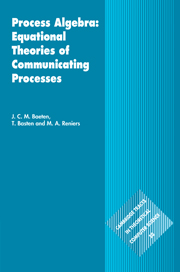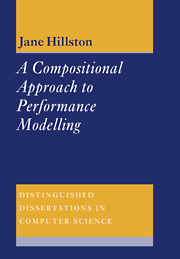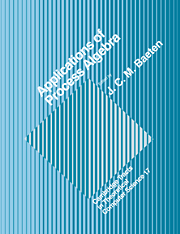Process Algebra: Equational Theories of Communicating Processes
Process algebra is a widely accepted and much used technique in the specification and verification of parallel and distributed software systems. This book sets the standard for the field. It assembles the relevant results of most process algebras currently in use, and presents them in a unified framework and notation. The authors describe the theory underlying the development, realization and maintenance of software that occurs in parallel or distributed systems. A system can be specified in the syntax provided, and the axioms can be used to verify that a composed system has the required external behaviour. As examples, two protocols are completely specified and verified in the text: the Alternating-Bit Protocol for Data Communication, and Fischer's Protocol of Mutual Exclusion. The book serves as a reference text for researchers and graduate students in computer science, offering a complete overview of the field and referring to further literature where appropriate.
- Presents a unified overview of process algebra, which makes it suitable as a reference book, course text or self-study aid
- Contains over 300 exercises ranging in difficulty to suit all readers
- Accompanying website (www.processalgebra.org) offers exercise solutions, software tools and more
Product details
January 2010Hardback
9780521820493
476 pages
235 × 158 × 30 mm
0.802kg
65 b/w illus. 80 tables 345 exercises
Available
Table of Contents
- Preface
- 1. Process algebra
- 2. Preliminaries
- 3. Transition systems
- 4. Basic process theory
- 5. Recursion
- 6. Sequential processes
- 7. Parallel and communicating processes
- 8. Abstraction
- 9. Timing
- 10. Data and states
- 11. Features
- 12. Semantics
- Bibliography
- Index of symbols and notations
- Index of authors
- Index of subjects.






